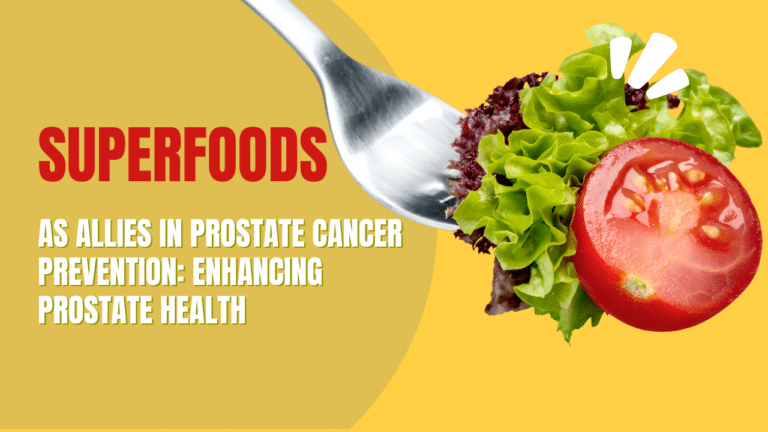The prostate, a walnut-sized gland that plays a crucial role in male reproductive health, becomes increasingly susceptible to various conditions as men age. From benign prostatic hyperplasia (BPH) to prostate cancer, these concerns affect millions of men worldwide. While genetics and age remain non-modifiable risk factors, emerging research consistently demonstrates that dietary choices can significantly influence prostate health outcomes.
A prostate-healthy diet emphasizes nutrient-dense, anti-inflammatory foods while minimizing processed options that may contribute to oxidative stress and inflammation. This nutritional approach focuses on incorporating specific vitamins, minerals, and phytochemicals that research has linked to improved prostate function and reduced disease risk. Understanding these dietary connections empowers men to make informed choices that support long-term prostate wellness.
Nutrients and Foods That Support Prostate Health
The foundation of prostate wellness lies in consuming foods rich in specific nutrients that combat inflammation, reduce oxidative damage, and support healthy cellular function. Research has identified several key food groups and compounds that demonstrate particular promise for prostate health. These evidence-based dietary recommendations provide practical guidance for men seeking to optimize their nutritional intake for prostate protection.
Tomatoes and Lycopene
Lycopene, the powerful antioxidant responsible for giving tomatoes their vibrant red color, stands as one of the most researched nutrients for prostate health. This carotenoid demonstrates remarkable protective effects against prostate cancer development and progression. Men consuming more than 10 servings of lycopene-rich tomato products per week showed a 10-15% reduced prostate cancer risk, making tomatoes a cornerstone of prostate-protective nutrition.
The bioavailability of lycopene increases significantly when tomatoes are cooked or processed, as heat breaks down cell walls and makes this antioxidant more accessible for absorption. Tomato sauce, paste, and cooked tomato dishes provide higher concentrations of bioavailable lycopene compared to fresh tomatoes. Additionally, consuming tomatoes with healthy fats, such as olive oil, further enhances lycopene absorption.
Beyond lycopene, tomatoes provide vitamin C, folate, and potassium, contributing to overall cellular health and immune function. Regular consumption of tomato-based foods supports the body’s natural defense mechanisms against oxidative stress, which plays a significant role in prostate disease development.
Cruciferous Vegetables
Cruciferous vegetables, including broccoli, cauliflower, Brussels sprouts, and kale, contain powerful compounds called glucosinolates that convert to sulforaphane during digestion. Sulforaphane demonstrates potential protective effects against prostate cancer development through its ability to enhance the body’s natural detoxification processes and reduce inflammation at the cellular level.
These vegetables also provide significant amounts of vitamin K, folate, and fiber, supporting overall health beyond prostate protection. The phytochemicals in cruciferous vegetables work synergistically to combat free radical damage and support healthy gene expression patterns that may prevent cancerous changes in prostate cells.
To maximize the beneficial compounds in cruciferous vegetables, light steaming or quick sautéing preserves more nutrients compared to prolonged cooking methods. Raw preparations, such as in salads or smoothies, also maintain high levels of beneficial compounds while providing variety in meal planning.
Fatty Fish and Omega-3s
Fatty fish such as salmon, mackerel, sardines, and tuna provide high concentrations of omega-3 fatty acids, particularly EPA and DHA, which demonstrate significant anti-inflammatory properties. Regular fish consumption rich in omega-3s correlates with lower prostate inflammation markers, suggesting a protective role against both BPH and prostate cancer development.
Omega-3 fatty acids help balance the inflammatory response throughout the body, potentially reducing chronic inflammation that contributes to prostate enlargement and cancerous changes. These essential fats also support cardiovascular health, cognitive function, and overall cellular membrane integrity.
For optimal benefits, aim to include fatty fish in meals at least twice per week. Wild-caught varieties typically provide higher omega-3 concentrations compared to farm-raised options. For those who don’t consume fish regularly, plant-based sources like walnuts, flaxseeds, and chia seeds offer alpha-linolenic acid (ALA), which the body can convert to EPA and DHA, though less efficiently.
Soy and Plant Proteins
Soy products, including tofu, tempeh, edamame, and soy milk, contain isoflavones—phytoestrogens that demonstrate protective effects against prostate cancer. Meta-analyses indicate soy isoflavone intake is associated with approximately 25-26% reduced risk of prostate cancer, making soy-based foods valuable additions to a prostate-healthy diet.
Isoflavones, particularly genistein and daidzein, may help regulate hormone levels and inhibit the growth of cancer cells. These compounds also demonstrate antioxidant properties that protect against cellular damage and support healthy gene expression patterns.
Other plant-based proteins, including legumes, lentils, and beans, provide additional benefits through their fiber content, B vitamins, and various phytochemicals. These protein sources offer alternatives to red meat while supporting overall prostate health through their anti-inflammatory and antioxidant properties.
Nuts and Seeds
Nuts and seeds provide concentrated sources of zinc, selenium, vitamin E, and healthy monounsaturated and polyunsaturated fats that support prostate function. Zinc, in particular, plays a crucial role in prostate health, as this gland contains higher zinc concentrations than any other body tissue.
Pumpkin seeds deserve special mention for their exceptionally high zinc content and potential benefits for BPH symptoms. Brazil nuts provide selenium, a trace mineral that works synergistically with vitamin E to protect against oxidative damage. Walnuts offer both omega-3 fatty acids and magnesium, supporting anti-inflammatory processes throughout the body.
A small handful of mixed nuts and seeds daily provides optimal nutritional benefits without excessive calories. Raw or lightly roasted varieties retain more nutrients compared to heavily processed options with added oils and salt.
Berries and Green Tea
Berries, including blueberries, strawberries, raspberries, and blackberries, contain high concentrations of antioxidants, particularly anthocyanins and ellagic acid, which demonstrate anti-cancer properties. These compounds help neutralize free radicals that can damage prostate cells and contribute to disease development.
Green tea contains catechins with anti-inflammatory and anticancer properties that may contribute to reduced prostate cancer risk. The most potent catechin, epigallocatechin gallate (EGCG), demonstrates particular promise in laboratory studies for inhibiting prostate cancer cell growth and promoting healthy cellular function.
Regular consumption of berries and green tea provides ongoing antioxidant support while offering enjoyable variety in daily nutrition. Fresh or frozen berries retain similar nutritional profiles, while green tea should be brewed with water below boiling temperature to preserve beneficial compounds.
Foods to Limit
While focusing on beneficial foods forms the foundation of prostate health, limiting certain dietary components may be equally important for optimal outcomes. Research has identified several food categories that may increase prostate disease risk when consumed regularly. Understanding these dietary patterns helps men make informed choices about reducing potentially harmful foods while maintaining nutritional balance and meal enjoyment.
High-fat dairy products, including whole milk, cheese, and ice cream, have shown associations with increased prostate cancer risk in several large-scale studies. The saturated fat content and potential hormonal influences from dairy may contribute to these observed relationships. Processed meats, such as bacon, sausage, and deli meats, contain compounds formed during processing and preservation that may promote inflammation and cellular damage.
Excessive calcium intake, particularly from supplements rather than food sources, has raised concerns in prostate health research. While calcium remains important for bone health, some studies suggest very high calcium intake may interfere with vitamin D metabolism, potentially affecting prostate cancer risk. Refined carbohydrates and added sugars contribute to inflammation and may indirectly affect prostate health through their impact on insulin levels and overall metabolic function.
Emerging Research
Current nutritional research continues to unveil new connections between specific nutrients and prostate health outcomes. Recent studies have highlighted the potential protective roles of selenium and magnesium, minerals that many men may not consume in optimal amounts. These emerging findings provide additional targets for nutritional optimization and potential supplementation considerations.
Selenium and magnesium intake have been inversely associated with prostate cancer risk and improved prognosis, suggesting these minerals play important roles in prostate cellular function and protection. Selenium works as a cofactor for antioxidant enzymes that protect against DNA damage, while magnesium supports numerous enzymatic processes involved in cellular repair and immune function.
Dietary flavonoids, found in colorful fruits, vegetables, and beverages like red wine and tea, demonstrate promise for improving prostate cancer prognosis and potentially preventing disease progression. These compounds work through multiple mechanisms, including anti-inflammatory effects, antioxidant activity, and influence on cellular signaling pathways involved in cancer development.
Research into the gut microbiome’s influence on prostate health represents another emerging area of interest. Certain dietary patterns that promote beneficial bacterial populations may indirectly support prostate wellness through improved immune function and reduced systemic inflammation.
Lifestyle and Practical Tips
Implementing a prostate-healthy diet requires practical strategies that fit into daily routines while providing sustained nutritional benefits. Simple meal modifications and smart food swaps can significantly improve the nutritional quality of daily eating patterns. These practical approaches help men transition toward prostate-protective nutrition without requiring dramatic lifestyle overhauls.
Start each day with foods that support prostate health by incorporating berries into breakfast cereals or yogurt, adding ground flaxseed to smoothies, or choosing green tea instead of coffee. Planning meals around colorful vegetables ensures adequate intake of protective compounds while providing variety and flavor satisfaction.
Replace high-fat dairy products with plant-based alternatives such as unsweetened almond, soy, or oat milk. These substitutions reduce saturated fat intake while potentially providing beneficial compounds like isoflavones from soy products. Choose lean protein sources, emphasizing fish, poultry, legumes, and plant-based options while limiting red meat consumption to occasional servings.
Incorporate nuts and seeds as healthy snacks between meals, providing sustained energy along with prostate-supporting nutrients. A Mediterranean-style eating pattern, emphasizing olive oil, vegetables, fish, and whole grains, naturally aligns with many prostate health recommendations while offering culinary variety and satisfaction.
Drink green tea regularly throughout the day, replacing sugary beverages with this antioxidant-rich option. Prepare tomato-based sauces and soups in advance for convenient meal additions that boost lycopene intake. Keep frozen berries available for easy additions to smoothies, oatmeal, or as natural dessert options.
FAQ Section
What foods are best for prostate health?
Tomatoes and tomato-based products rich in lycopene, cruciferous vegetables like broccoli and kale, fatty fish high in omega-3s, soy products containing isoflavones, nuts and seeds providing zinc and selenium, berries with antioxidants, and green tea with beneficial catechins represent the most beneficial foods for prostate health. These foods work through various mechanisms including reducing inflammation, providing antioxidant protection, and supporting healthy cellular function.
Does lycopene really protect the prostate?
Yes, extensive research supports lycopene’s protective effects on prostate health. This powerful antioxidant, concentrated in tomatoes and tomato products, demonstrates the ability to reduce oxidative stress and may slow prostate cancer tumor growth. Cooked tomato products provide the most bioavailable forms of lycopene, and regular consumption has been associated with reduced prostate cancer risk in multiple large-scale studies.
Should men limit dairy and calcium?
Moderate consumption of low-fat dairy products generally poses no concern for most men, but high intake of high-fat dairy products may increase prostate cancer risk. Very high calcium intake, particularly from supplements, has raised some concerns in research studies. Men should focus on meeting calcium needs through varied food sources while avoiding excessive supplementation unless recommended by healthcare providers for specific health conditions.
Can green tea help prevent prostate cancer?
Green tea contains catechins, particularly EGCG, that demonstrate anti-inflammatory and potential anti-cancer properties in laboratory studies. While human research continues to evolve, regular green tea consumption appears to provide antioxidant benefits that may support overall prostate health. Green tea can serve as a healthy beverage choice as part of an overall prostate-protective dietary pattern.
Are plant-based diets protective?
Plant-based diets naturally emphasize many foods associated with prostate health benefits, including fruits, vegetables, legumes, nuts, and seeds. These dietary patterns typically reduce intake of foods that may increase prostate disease risk while maximizing protective compound consumption. However, well-planned omnivorous diets that emphasize plant foods while including fish and lean proteins can also support optimal prostate health.
Conclusion
A prostate-healthy diet emphasizes colorful, nutrient-dense foods while limiting processed options that may contribute to inflammation and disease risk. Key protective foods include lycopene-rich tomatoes, cruciferous vegetables, omega-3-rich fish, soy products, nuts, seeds, berries, and green tea. Limiting high-fat dairy, processed meats, and refined carbohydrates further supports optimal prostate function.
The evidence strongly suggests that dietary choices can significantly influence prostate health outcomes throughout life. Men who adopt these nutritional strategies may reduce their risk of developing prostate-related conditions while supporting overall wellness and vitality. Small, consistent changes in daily eating patterns can provide cumulative benefits over time.
Consider complementing these dietary strategies with laboratory testing to assess nutritional status and identify potential deficiencies in key nutrients like selenium, magnesium, vitamin D, and zinc. Understanding individual nutritional needs through comprehensive testing can guide personalized supplementation and dietary modifications for optimal prostate health support.
Order Your Men’s Health Panel Today to gain valuable insights into your nutritional status and take proactive steps toward optimal prostate wellness through targeted nutrition and lifestyle strategies.
This article is for informational purposes only and is not intended as medical advice. Consult with your healthcare provider before making significant dietary changes or starting any supplementation regimen, especially if you have existing health conditions or take medications.





